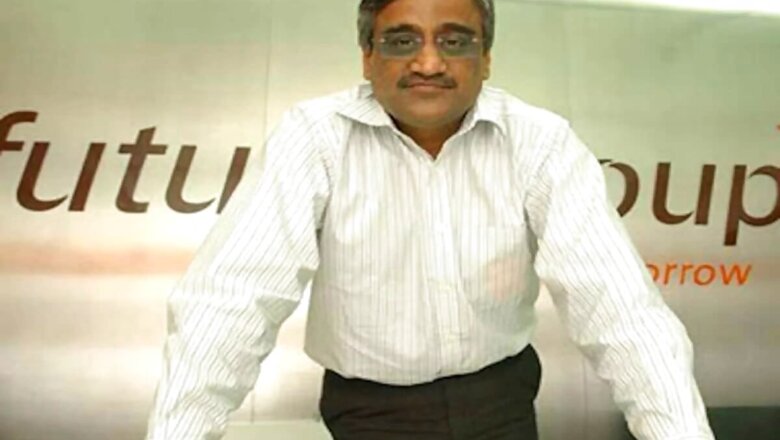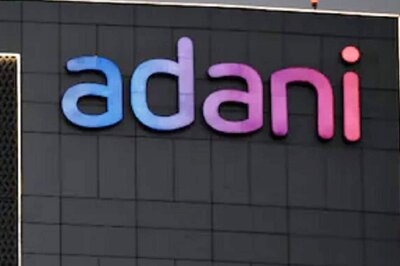
views
Reliance Retail’s acquisition of the retail business of the Future Group, the crown jewel of the company, for Rs 24,713 crore, has brought to an end the three decade-long journey of Indian retail sector’s poster boy, Kishore Biyani.
In 1987, a young Marwari got frustrated by the conservative business approach of his family elders and started a garment manufacturing business, called Manz Wear. By 1997, the business was doing well enough for Biyani to open the first Pantaloons store in Kolkata. It was said to be twice the size of any other store in the city.
The brand and the stores caught the imagination of an exploding middle-class that was beginning to reap the fruits of the 1991 liberalisation. In 2001, he diversified and launched his biggest success; he started a series of supermarket stores under Big Bazaar.
Fashioned to replicate a busy and chaotic marketplace that Indians were otherwise used to, but packaged in a supermarket format, the retail chain became immensely popular and expanded fast. Over the next six years, it will add nearly 100 stores across the breadth and length of the country.
Biyani’s biggest success had come from diversification. He looked for more opportunities. He had already burnt his fingers by venturing into Bollywood and making two movies that were both, critically and commercially, panned. But like an entrepreneur, always looking out for a new opportunity, Biyani used the same risk-taking penchant to diversify further. Alas, as he would accept years later, he shouldn’t have.
In 2007, Biyani’s Future Group diversified into insurance and launched Future General Insurance. In the same year, Future Capital was formed, offering financial products, wealth management services, equity broking solutions and real estate broking. His group also ventured into real estate.
These ventures were to prove costly later. Even though he managed to recover from the 2008 global economic meltdown, entry of aggressive deep-pocketed rivals meant that the original retail king also had to keep burning cash to retain market share. But clearly, the entrepreneur had spread himself, and his business empire, too thin.
In early 2019, having diversified into many categories over the years with limited success in some of them, Biyani confessed that it was a mistake and the company would restrict itself to food, fashion and home furnishings verticals. But by then it was too late.
By March 2020, ratings agency ICRA had already placed a negative rating on Future Group’s holding company Future Corporate Resources to non-investment grade on high debt levels. Future group was burdened with net debt of about Rs 12,989 crore with all shares of promoters being pledged with lenders.
A graduate from HR College in Mumbai, and hailing from a business family that was originally from Rajasthan, Biyani started his entrepreneurial journey by making readymade trousers in the late 1980s but his retail journey only started in the late 1990s when he set up a Pantaloons store and a Big Bazaar in Calcutta.
Biyani’s strategy was to depend heavily on white-label FMCG, produced under Future Consumer Enterprises, and offer the cheapest and best groceries in his shops. While he will continue stocking FMCG products made by others like ITC and Hindustan Unilever (HUL), his own labels allowed him to offer the highest value proposition while simultaneously protecting his margins. Biyani thought it will become a huge revenue and profit generator, and the most crucial part of his strategy.
He brought in more formats and labels – Pantaloons, Big Bazaar, Food Bazaar and Central. In late 2009, Biyani was forced to restructure the group by de-merging the non-retail assets. He focussed only on four formats rather than 24. The retained ones were – Pantaloons, Central, Big Bazaar and Food Bazaar. But the debt problem refused to go away.
In April 2012, the debt for the core retail business sored to Rs 5,800 crore and the net debt-equity ratio at 1.8x. The debt was nearly 55 percent of the FY12 EBITDA. The same year, he sold off his first success, Pantaloons, to the Aditya Birla group for Rs 1,600 crore. Even as he was caught up to clean the debt pile – including a futile attempt to divest the insurance business to L&T – consumer was moving on to online shopping.
By March 2020, it was clear that Biyani was struggling to keep his business afloat. Future Retail was downgraded, debt had piled up even more, and the entrepreneur’s net worth, according to Forbes India, had fallen to $400 million, from about $1.7 billion just a year ago.
While he and his family held 33.5 percent stake in Future Group, nearly all of it was pledged to lenders.
It didn’t help that from the end of March, the country went into a lockdown post the COVID-19 disruption. Even though outlets selling essentials could be opened, consumers preferred their neighbourhood shops, or opted for online players. Big Bazaar outlets were mostly located in malls, which opened much later, and continue to struggle to get footfalls. The impact was telling on the company’s stock, which plummeted by over 80 percent in a matter of four months.



















Comments
0 comment